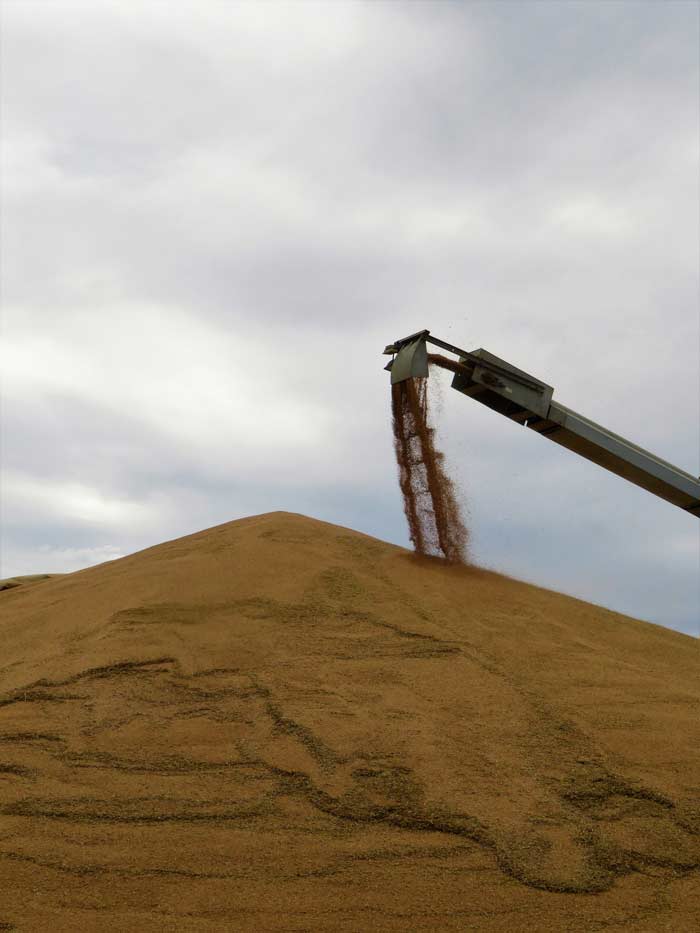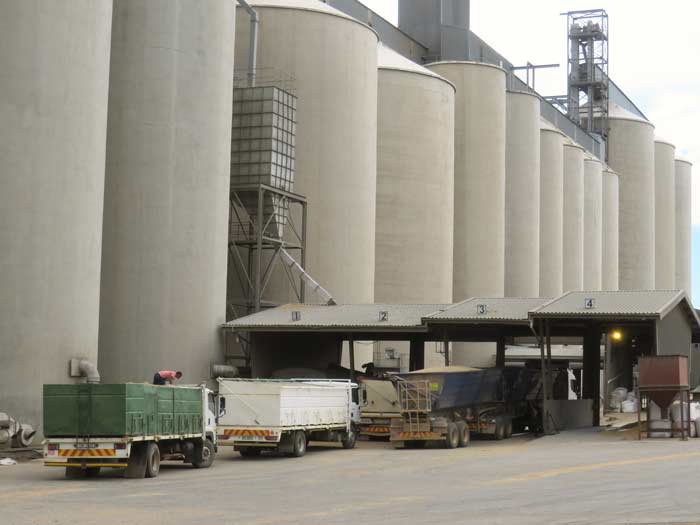Winter grain producers in the Overberg and parts of the Southern Cape had to face several challenges before the 2022 harvesting season commenced. Although the tonnage looked promising in mid-October and seemed to be at least ‘average’, the barley yield especially has caused headaches at this early stage.
Barley
While the barley quality in the eastern production regions around Swellendam and Heidelberg offered good stitch-off levels for malting barley grading, there was great concern in the more western Overberg area, in the Caledon, Riviersonderend and Bredasdorp regions, regarding the challenge of wheat among the barley. This was according to Cornelius Odendaal, manager of Unigrain in the Western Cape.
Unigrain is a contractor for malted barley in the Overberg and the Southern Cape on behalf of AB InBev, the processor who malts barley supplies from the region in Caledon as well as in Alrode, Gauteng.
‘Due to the drier summer, wheat kernels that remained on the ground did not germinate. With planting time’s tilling action, a lot of this wheat germinated. So, consequently there is much more wheat in the barley than would normally be seen and we cannot malt it,’ said Odendaal.
‘Our producer customers couldn’t kill the wheat from the previous year everywhere with weed killers. This resulted in issues within the soil where barley had been planted this year, because the remnant seeds have been germinating and developed among the barley.’
Despite the dilemma with the higher than acceptable wheat levels in the barley samples, Henk de Beer, the outgoing general manager: Industries at SSK, was satisfied with the quality of early wintergrain deliveries.
Concession
Producers are grateful for a special concession from AB InBev who increased the permissible 0,5% wheat in a single barley sample for this year to 2% per sample for a limited number of tons of barley, due to the challenge posed by wheat in the barley.
‘The slight relaxation of the regulations is welcomed, and we hope that we will manage to absorb the impact of this,’ said De Beer.
The extent of the crop
Odendaal expected that the tonnage of the 2022 barley harvest, at an estimated 270 000 tons, will be significantly smaller than in 2021. However, according to the crop estimates committee, a total barley production of 365 850 tons is expected for the 2022/2023 production season.
De Beer said that by 18 October, SSK had taken in about 25 000 tons of grain and canola in the eastern production areas of the Overberg and the Southern Cape. About 50% of it was barley and the rest was canola, as well as a lot of wheat and some oats.
‘These deliveries come mainly from the Swellendam, Heidelberg and Karringmelksrivier areas. Although they were a little behind, the Albertinia and Riversdal region is also on track.’
He expected a reasonable average harvest for the SSK region, but canola, which is still a relatively new crop with less accurate harvest estimates, may do better than expected due to its good drought tolerance. He thought that barley production would be average and that wheat and other crop yields would only be able to be accurately predicted as the production season commences.
Wheat
Odendaal agreed that 2021 was an exceptional year for wheat yields in the Western Cape. ‘Just less than 1,3 million tons of wheat had been produced. The expectation for this year is 950 000 to 1 million tons. In 2021 the protein was low. Millers had to import large amounts of high-protein wheat for quality flour. Due to a drier year, we expect higher protein, grades and price realisation.’
Protein levels in the first producer deliveries for 2022 from the Riversdale, Heidelberg and Petit regions were most likely to be better than last year’s grades, with the kickstart this year, he said.

Contract pricing requires good decision making
Odendaal referred to the extraordinary volatility in the wheat price and said producer decisions on forward pricing for wheat was ‘a tremendous task’.
Until about two years ago, the price of wheat did not rise or fall by more than R400/ton over an entire year. In November 2021, the average Safex-price on the exchange was almost R6 000/ton, but at the peak of the Russian-Ukrainian conflict prices hit a maximum point at R8 400/ton, compared to the average price of around R7 100/ton in November 2022. This is a variation of around R2 400/ton within months.
‘This volatility, along with many other factors, was particularly affected by the exchange rate, which directly affects import prices, and the world price, which when higher makes import prices more expensive and affects the local price,’ said Odendaal.
‘With profit in mind, farmers must realise that the price is currently about 25% better than last year, but the input costs per hectare are about 35% higher. This puts the farmer on the back foot and this year’s tons seem to be less than last year’s. When your expected tons multiplied by the available price is profitable compared to your input costs, it may be wise to already price a number of tons in advance.’

The crux is the climate and grain quality
Odendaal continued: ‘Despite the producers being ready with state-of-the-art and well-adapted combine harvesters, tap carts and other harvesting equipment to work around the clock during the Overberg’s small window for harvest time, the wind that can blow down the ears of grain and any rain on flat-cut rows remain risky. This can negatively affect grain quality and profitability.’
Grain quality during harvest time largely contributes towards the ability to store it safely while sustaining grade qualities. By starting off with good quality ripe grain, keeping a strict eye on continual aeration during storage and when necessary, drying towards the ideal moisture levels, optimum grain quality will benefit the full value chain.
De Beer assured producers that they and their staff’s hard work in harvest time were supported by the best service from grain storers. ‘With enough generators at the silos, long working hours and weekend work during harvest time, we will help manage the risk as best as possible. We trust the rain to arrive after the harvest has largely been gathered in time. We are in business together and believe everything will turn out well.’




























